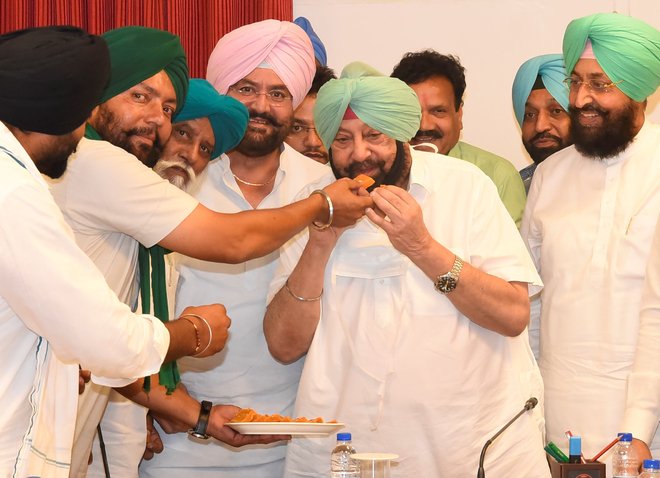With an eye on the upcoming Vidhan Sabha elections, the Congress government today announced a hike in state advised price (SAP) of sugarcane by Rs 50 per quintal over the last year’s price, fixing it at Rs 360 per quintal. Welcoming the decision, the protesting farmers lifted the blockade on the Jalandhar-Phagwara highway and rail tracks.
Private sugar mills seek subsidy
- Punjab Private Sugar Mills Association, a body of seven mills, says they will pay the hiked SAP only if the state subsidises them
- “If the state wants to increase SAP on a par with Haryana, it should emulate its neighbour’s policy of paying the differential between the fair and remunerative price (FRP) and SAP (Rs39 per quintal) as subsidy to mills,” said two private sugar mill owners
- “Moreover, the sugar recovery rate in Haryana and Uttarakhand is much higher at 10.9 and 11.5%, as compared to 9.6% in Punjab. The decision is not acceptable to us,” they added
The decision to increase the SAP was taken after a meeting between Samyukt Kisan Morcha leaders and Chief Minister Capt Amarinder Singh here. The CM told the farmer leaders the state’s financial situation had held back the government from raising the SAP for the past few years.
Last week, the government had proposed raising the SAP to Rs 325 per quintal, leading to the blockade by farmers. The intervention by Cooperatives Minister Sukhjinder Singh Randhawa, too, failed to break the ice between farmers and government, and rail and road traffic in the state remained disrupted.
Sources in the government said during today’s talks, the CM initially proposed Rs 340 per quintal, with an assurance that it would be raised by another Rs 15 per quintal in the next cane crushing season. After the offer, farmer leaders, including Balbir Singh Rajewal and Manjit Singh Rai, insisted the SAP be raised in one go, and should be higher than that of neighbouring Haryana. It was then agreed that the SAP be fixed at Rs 360 per quintal, Rs 2 per quintal more than the SAP of Haryana.
Interestingly, former minister Rana Gurjit Singh, whose family owns a prominent sugar mill, supported farmers’ demand and played a key role in resolving the crisis. Rai later told The Tribune the decision would help alleviate the suffering of debt-ridden farmers.
The SAP of sugarcane has been increased from Rs 295-Rs 310 per quintal (based on the variety) after a gap of four years. Last February, an expert committee headed by scientists from Punjab Agricultural University had recommended the SAP be fixed at Rs 342 per quintal after calculating the input costs.
The reason for the price not being increased was state’s weak fiscal health, and its complete dependence on private sugar mills, which crush over 70 per cent of the cane. Private mills, owned by politicians from across the political spectrum, have been resisting any hike in SAP, saying the retail and wholesale prices of sugar have remained low in the past couple of years.
The retail price of sugar now hovers around Rs 4,000 per quintal and wholesale price around Rs 3,800 per quintal. “The average mill realisation for crushing cane and sugar production is Rs 3,250-Rs 3,300 per quintal, based on a 10 per cent sugar recovery rate. Most private mills have distilleries and cogeneration plants, besides selling molasses in huge quantities. Thus, they should be making good profits. The only issue is the nine cooperative sugar mills, where the state will have to shell out more from its kitty to pay the hiked SAP to farmers,” says Jaswant Singh, former Cane Commissioner, Punjab.
The above news was originally posted on www.tribuneindia.com





